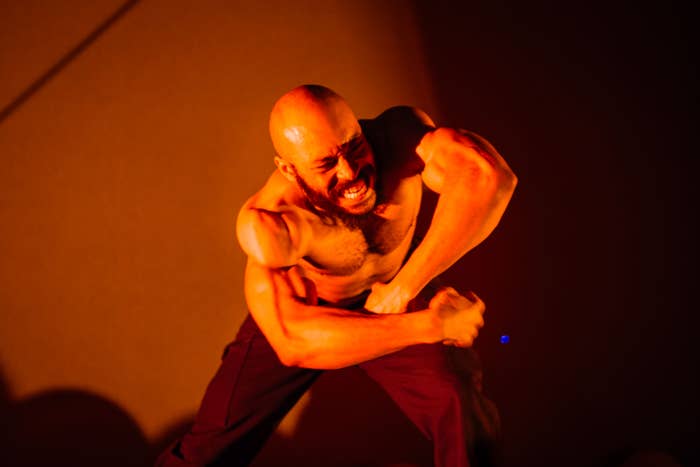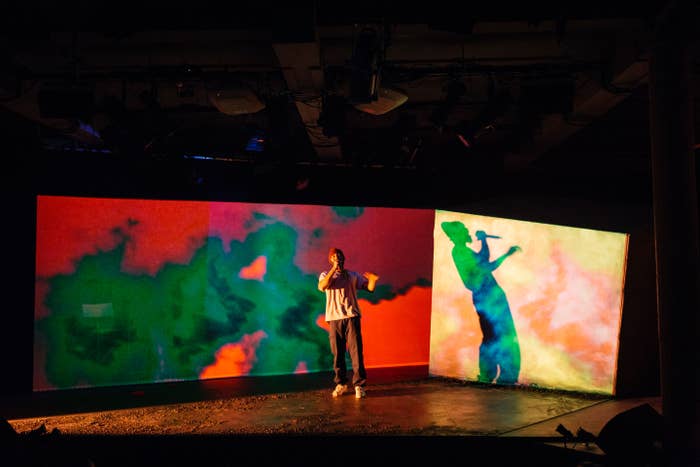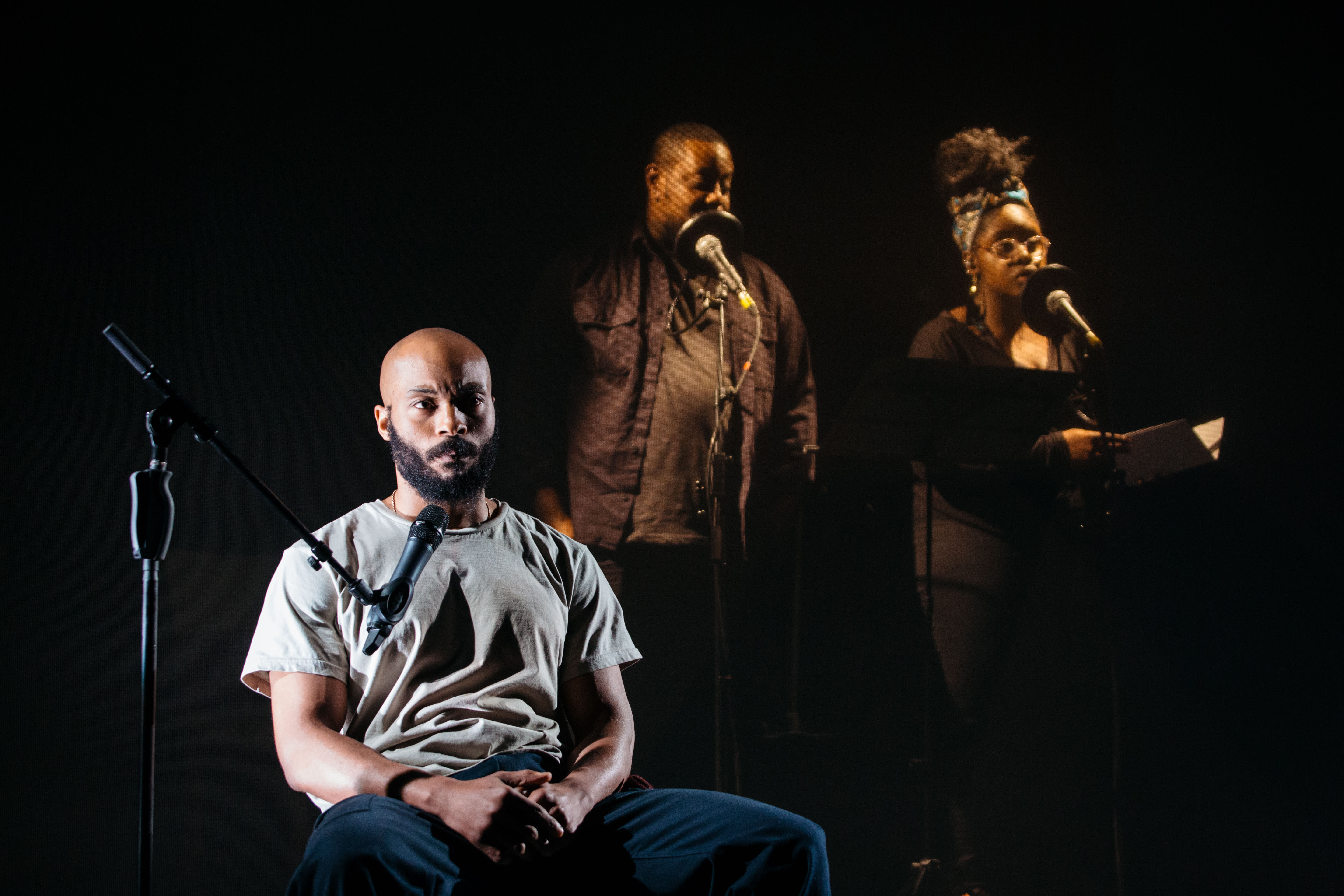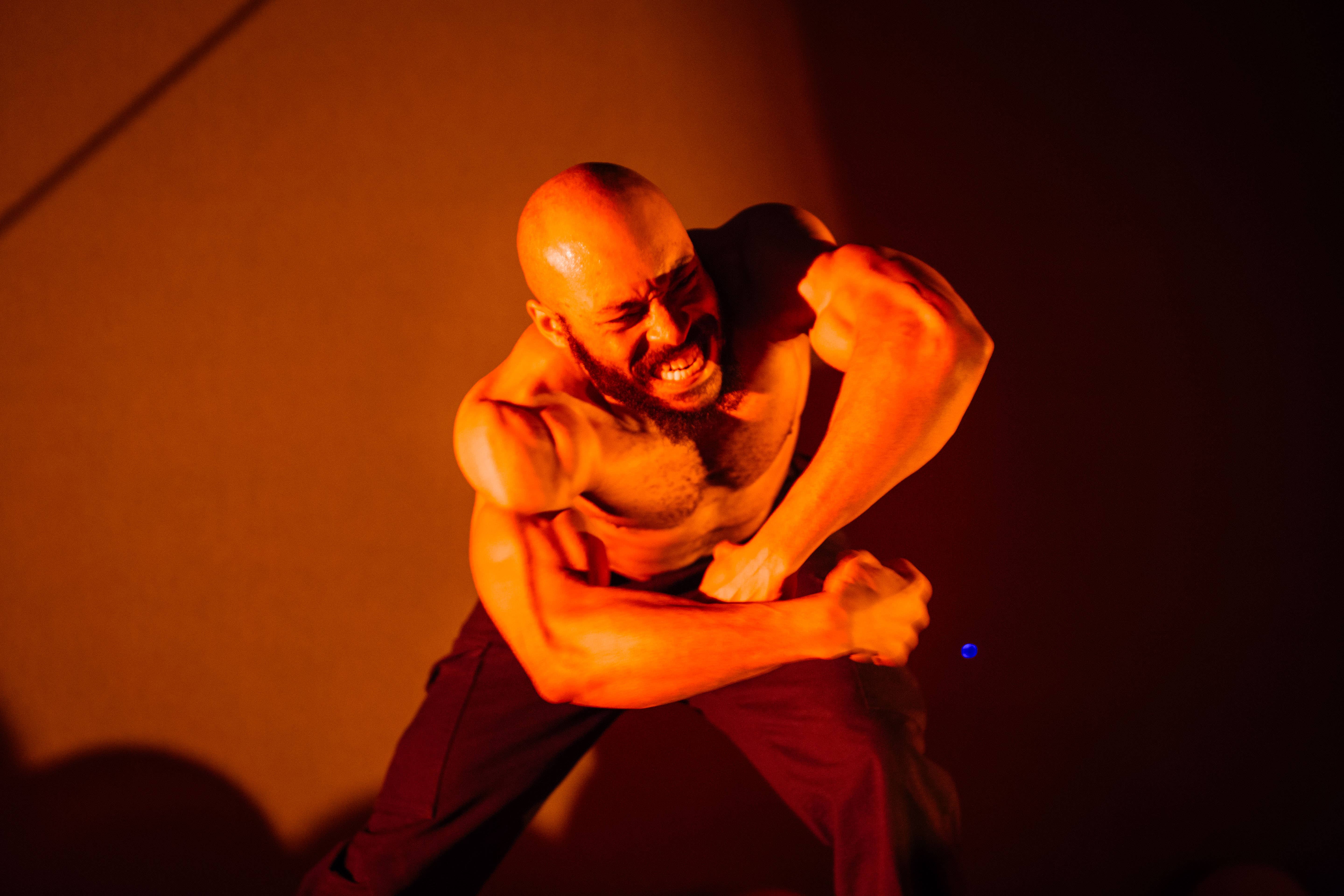
In the Q+A following last week's performance of Arinzé Kene's Misty, the actor was asked what the title of the show meant. It's a question that's been weighing on all those who have seen the show, and when he responded to the audience member, Arinzé simply said: "It's Misty."
The surrealism of Misty, which is currently on at Trafalgar Studios for its second run following its first Bust Theatre run earlier this year, leaves you with more questions than you arrive with. Essentially, its sole actor (Arinzé Kene) is asking himself—and the world—a host of questions; perhaps the most pertinent one being, what makes a black play? Then he pretty much asks, which many black creatives find themselves asking at the apex of their career, "am I just a minstrel?" Misty itself, is an apt name, because the play is about more than just gentrification—it's about survival, too.
But for black people in this country, is that future so clear?
Misty is arresting in its nature, through the use of a ferocious lyrical segment and Kene's breaking of the fourth wall in various moments. In a show about gentrification, and a topic where it's often easy to look at the most obvious concerns, Misty provoked audiences to place themselves within the bubble and ask whether they were the blood cell or the virus. For Kene, who grew up in Hackney and has seen the borough change dramatically over the past twenty years, it wasn't just an interrogation of London and its social and housing climate but also his status as a black man.

What has made the show successful isn't just the avant-garde storytelling: it also addresses the romanticisation of black trauma that is made palatable for non-black audiences. Misty does well to interrogate the intentions of white audiences and their reasons for being there, but after they exit the theatre doors, it's the black creatives—such as Arinzé Kene—who are left to find the answers to a question that shouldn't need answering.
Are black plays subversive by nature because of the white middle-to-upper class spaces they take up? Many of the reviews focus specifically on the gentrification aspect of the play, the quotes on the back of the script also. But for black audiences, we go in already aware that these are issues we've long been facing, particularly as creatives in Britain post-2010. The viruses are brought into question too, those considered white middle-class yuppies, moving to areas such as Hackney and Dalston. However, much like the wider conversation surrounding gentrification of late, the individual has rarely had to hold themselves accountable.

There's a moment where Arinzé is aggressively bursting the orange balloons found floating on-stage, and does so with such slow turmoil. This scene is abstract enough where audience members are able to come to their own conclusions as to what the orange bubbles actually mean, but he knows all too well that as a black British actor, there are bubbles that he exists both within and outside of.
Director Omar Elerian and designer Rajha Shakiry's creative visions allowed the stage to be transformed into the world and mind of Arinzé; it was as vivid, somewhat absurd and chaotic as the world outside it. And with Kene as the show's sole performer, it also subtly acknowledged the lonely paranoia that can sometimes enthrall black people in this country where we're caught between trying to thrive and survive. Misty does well to depict that the line between the two is very thin.

